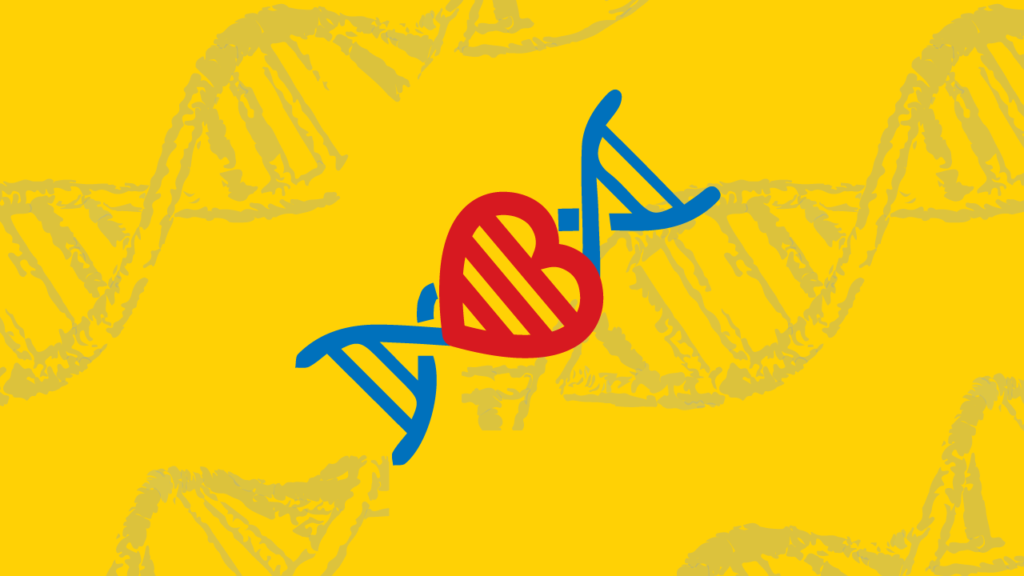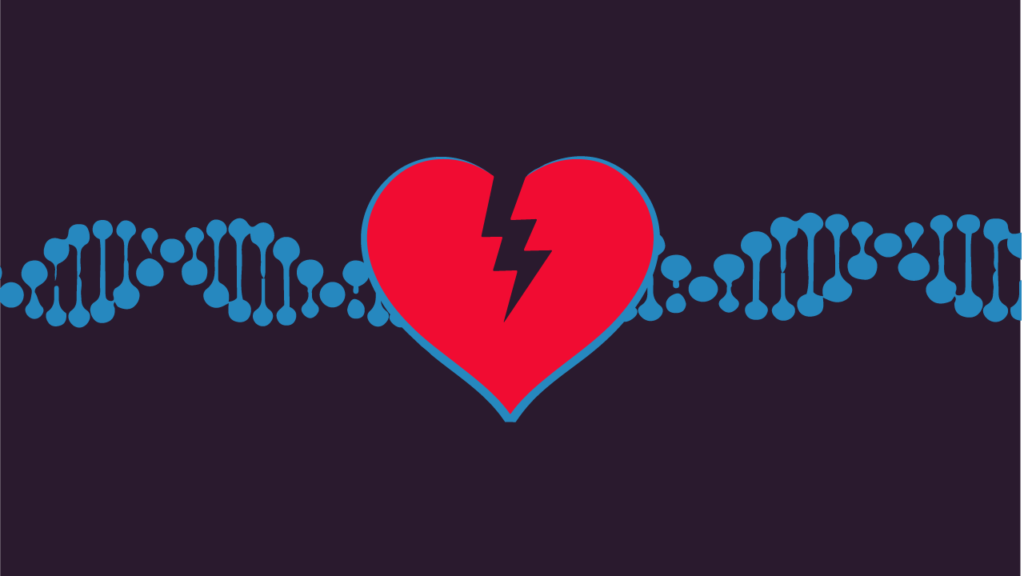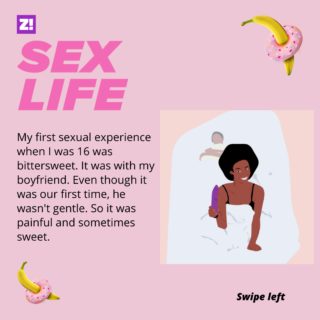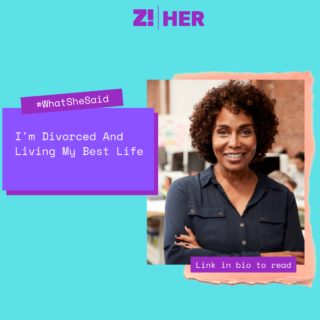What does it mean when you fall in love with someone but cannot marry them or have a future with them because of your genotype? What do you do? Do you walk away or stick with them: in sickness and in health? Read about this young man who would have done everything and anything to be with the woman he loves but cannot marry.

We met in church. Which shouldn’t have happened; my only church rule is not to date anyone from church. It sounds like such a simple rule, and it was, until I met Lola. It was her voice, the look on her face — it was her. One minute we were at choir rehearsals, the next, I was plotting a future with her: what our children and home would look like, the trips we would go on, etc.
She lived on a campus, close to where I lived at the time. This made it easy for me to design a system: I went to her place every day after work, and stayed with her till the university gates were about to get closed around 11pm.
It didn’t take long for me to pop the question, to ask her: Hey ma’am, would you be my girlfriend? What took an even shorter time was easing into the relationship — we spent a lot of time together; she was essentially the only life I had outside of work. She was my social life. Before Lola, I had no sense of fashion, my closet was awful colours and threadbare clothes, but we changed my wardrobe together.
Our relationship went well for a month, until one cold evening. Leaning into me in her dark room, we started talking about genotype, an essential conversation for every Nigerian couple. It started with a conversation about her ex. He loomed like a threat in my mind as all exes typically do, but she was over him. That’s what she said, that they could never have worked out — their genotypes were incompatible. She didn’t need to tell me the rules. I knew them like a creed; someone with the AS genotype could not get married to someone with the AS genotype or AC genotype and vice versa. That was the story every educated Nigerian knew. My heart jumped, skipped several beats, jumped again. I tried to steady my breathing and shaky fingers. She continued.
“My mum’s brother, uncle Ola died after a crisis. He was SS.”
Her mother also had sickle cell.
In school, or outside of school like on social media or at a hospital and even in church, we learn that when someone with the AS genotype marries AS the following are the possible genotypes of their children: AA, AS, AS, SS and that the probability of having AA and SS is 0.25 but AS is 0.5. There is no guarantee that any of the children will be AA or AS, they could all be SS which is really dangerous. We are told that having a kid with sickle cell drains all the happiness in a marriage and that people with the AS genotype should only marry people with AA genotype, in order not to negotiate long-term happiness for “short-time passion.”
It was too early to think about marriage, but I told her about this one thing, amongst the few other things we share in common: we both carry the precious ‘A’ as half of our genotype. Things go a little south in the second letter – she’s an ‘S’, and I’m a ‘C’. While the AC genotype is not as popular — as it is rare — it is true that people with the AC and AS genotypes cannot get married for similar reasons.
If Lola and I have a child together, there is a 25% chance that they will have sickle cell trait (AS), a 25% chance they will have hemoglobin C trait (AC), and a 25% chance they will have hemoglobin SC disease (SC) which can cause the same complications as sickle cell disease (SS) although generally less severe.
She sighed and before I knew what was going on, the conversation had reached a very dangerous territory: breaking up.
“It was easy to break up with my ex because it felt right. But I’m not sure about this time. It feels different,” she said.
“Let’s just see how it goes,” I said, my fingers tracing the lines in her palms. “What’s the worst that can happen?”
We laid out our options – none of them included breaking up; nothing was going to keep us apart. The first option was to go ahead and try to have a baby when we got married, and if we discovered it was a risk genotype at pregnancy, we would abort. The second option was to just adopt. We agreed that the moment we had a child who was AS we were done with childbearing.
We even spoke with her doctor.
“We have people who go ahead and get lucky,” he said.
In the end, we decided to take a chance. We were willing to sail through together – and sail we did.
Until her mother had a crisis and the panic returned. This time, we ended the relationship. But only briefly because, two days later, we were back together. We were madly in love and so we stuck together. After a while, the panic returned, but this time, it was from Twitter. Twitter always has something to talk about, and on this particular day, it was genotype. I saw a tweet about it and sent it to her like I did with everything else – a funny skit, a dance video, porn.
When my phone rang moments later, I started to wonder if sharing the tweet had been a bright idea.
“Thank God you sent it. I’ve been thinking…” Her voice trailed off.
She went on to tell me about the conversation she had with her dad a week ago where he asked if she had a boyfriend and what his genotype was. When she told him my genotype was AC, he shouted at her. She probably didn’t raise it when it happened because it was difficult for her, but I created a window when I sent the tweet and she did. She probably would have had to anyway.

“We have to end it,” she finally said.
I was quiet for a long while, before I nodded to myself, then said yes to her hearing. I only agreed because I thought it would be like the last time where we got back together in a few days. The next day, I travelled for work on a one week trip; we weren’t speaking over the phone, but we were texting as usual, so it felt like nothing had happened, like we hadn’t broken up, like we were going to have a life together, against all odds. It felt like all was well.
It was only when I returned that I realised that things had changed — I felt the impact of the change like breeze hit my face.
I scrolled through Twitter to see how she was doing and with her tweets like nothing had happened, she seemed to be doing fine. It drove me crazy: how could you be heartbroken and still active? Maybe being on social media and acting normal is a coping mechanism for her, as leaving became for me. I emptied my bio, blacked out my avatars across all my social accounts, and then deleted them altogether — I felt unstable. I eventually deactivated Twitter.
It’s expected that I try to heal and move on, but the weeks passed, and I didn’t. I couldn’t. Perhaps, because I wasn’t trying. I didn’t delete her photos. I looked at them every day. I was willing to do anything to have her back. I knew she had ended our relationship because of our genotype struggle, but what if I could fix it?
I reached out to her after a while to ask her about an option I had been thinking about. “What if I do a bone marrow transplant? And switch from AC to AA?” I asked.
It’s the only medically proven way to fix it. I’d need an AA donor who was a match, preferably family. The bone marrow would be extracted from the donor’s hip, and then we would have pre-transplant evaluations of our vital organs. We would speak to a psychologist. 10 days before, they would put me on admission in sterile conditions. Then the bone marrow which was extracted from the donor’s hip would be passed into my body like a transfusion for a few hours. Afterward, I’d be kept under sterile conditions for the next month, because of the vulnerability to infections. I’d eventually be discharged and monitored for the next few months to make sure it worked. I’d do it in India. It would cost about $15,000. I don’t have that kind of money, but it didn’t matter; I’d look for it, take a loan or something. There are people who don’t survive it, but it was a chance I was willing to take.
In the end, we would be together — it would be worth it.
“It’s too dangerous,” she said and hung up.
My parents are AS and they survived it with no SS children — a testimony of the best case scenario. Her family on the other hand is the opposite — evidence of all that could go wrong: Her mother is SS, her uncle died from a sickle cell crisis.
I’m still hanging on though, hoping we can get back together. I know I’m not getting into a relationship for a very long time. If this is truly over, then I just might become that person you’ve seen at the parties. That 40-something-year-old bachelor, standing close to the speakers, dancing and drinking all the booze. The one who’s everyone else’s entertainment, but is, in fact, sad and lonely.
My friends think I’m suicidal. I’ve done drugs to try to survive. One night, I even finished a bottle of Jameson. I’ve also tried distracting myself with more work, but even that’s not working. My friends are constantly checking on me and I’m grateful for this. They tell me it is normal, and that I should just give myself time. But it isn’t, and I know this. People who tell me I’ll get over it probably haven’t experienced actual love. Love that consumes you and takes you away.
The words, ‘love of my life’ annoys me a lot. It triggers me when people use this word anyhow. For me, it means that you can move on after two years, get married, start a new life, but the moment you set your eyes on someone else, there’s the potential for your entire life to fall apart again.
I recently read this interesting story of sickle cell. The story goes that malaria was dealing a heavy blow to our ancestors, and killing them. And so their bodies tried to fight back, and the only way to fight the malaria parasite, was for the cell to change a little. Some self-sabotage. And so my ancestors lived and had children, who had children, who had children.
Could their bodies have known that this act of survival was going to cause this much hurt today?
Did you enjoy this? If you can relate, or have an interesting love story to share about love, heartbreak and everything in between, email me ope@bigcabal.com




